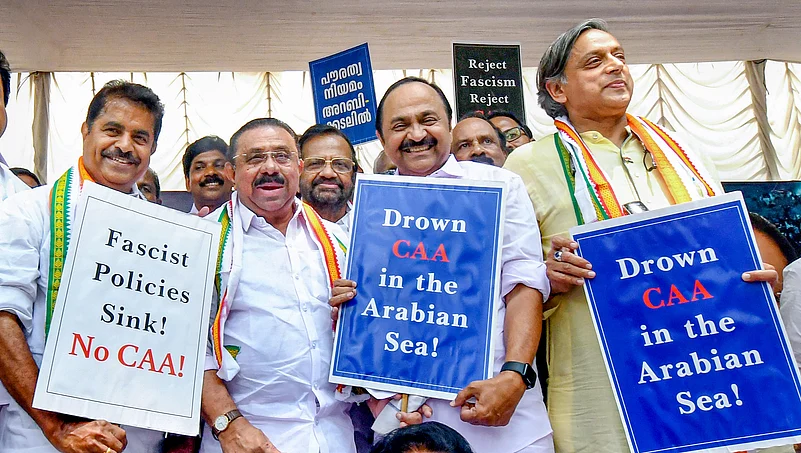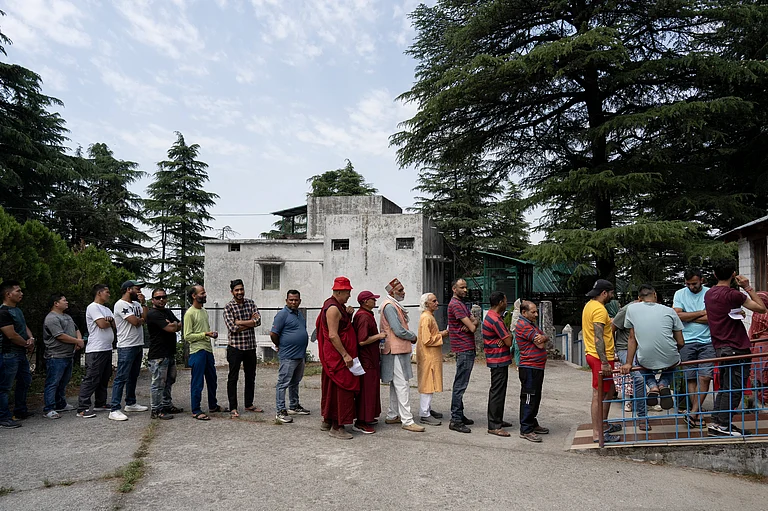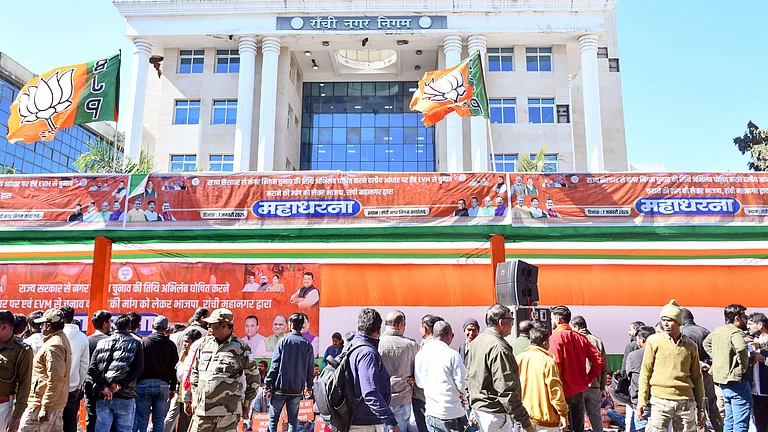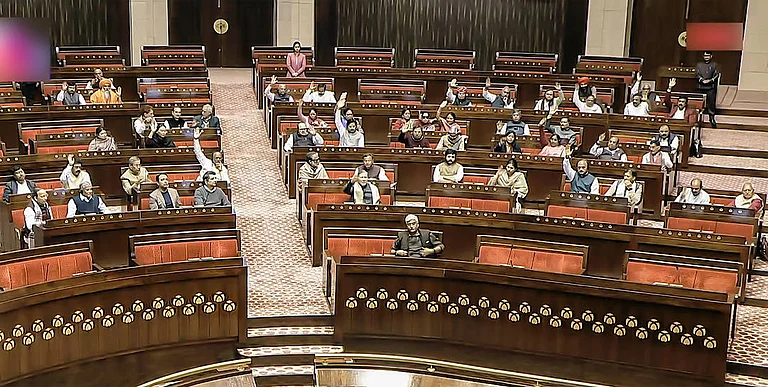Despite being one of the states that do not have a direct impact of the Citizenship Amendment Act (CAA), Kerala is witnessing a surge of protests across the state organised by both the LDF and the UDF. Immediately after the news of the CAA notification spread, the Democratic Youth Federation of India —the youth wing of CPI-M— initiated night marches across the state. The Youth Congress organised demonstrations at railway stations, symbolising their protest against the Union government.
Chief Minister Pinarayi Vijayan of CPI-M has categorically stated that Kerala would not cooperate with the implementation of the CAA in the state. Kerala Law Minister P Rajeev has informed the media that the state government is exploring legal avenues to intervene against the notification of the CAA, which is pending consideration by the court. The Kerala government filed a petition under Article 131 of the Constitution challenging the CAA in January 2020, which is awaiting a hearing.
“It is a tactic to divert attention from the core issues affecting the people in the face of the election. While the matter is pending consideration by the Supreme Court, the government’s insistence on implementation is atrocious,” says Rajeev.
Around 200 petitions challenging the CAA are pending in the Supreme Court, including the one filed by the Government of Kerala.
The Democratic Youth Federation of India filed an application in the Supreme Court seeking a stay on the CAA rules notified on Monday. “Citizenship is being extended to certain a class of illegal/undocumented migrants belonging to the religion of Hindus, Sikhs, Buddhists, Jains, Parsis and Christians coming from Afghanistan, Bangladesh and Pakistan. Such classification on the basis of religious identity of the individual clearly violates Article 14 and 21 of the Constitution. Moreover, the classification based on the religious identity of the individual offends the fundamental principle of ‘Secularism', which is enshrined as basic structure of the constitution,” states the application filed by DYFI. The Indian Union Muslim League has also filed a petition in the Supreme Court on the same grounds asking for the imposition of a stay on the CAA rules.
Hundreds of protesters have been detained by the police at various locations in Kerala since Monday night. The Social Democratic Party of India, the political wing of the PFI, has alleged that the LDF Government booked 104 activists of the party for staging a protest at Raj Bhavan. According to existing guidelines from the Kerala High Court, filing an FIR is mandatory for demonstrations staged without prior approval from the police. Local media reports indicate that 831 cases have been registered against 7,900 individuals across the state for protesting against the CAA rules.
The police resorted to a lathi charge against activists of the Fraternity Movement, an affiliated organization of Jamaat-e-Islami and the protesters were allegedly beaten up. Cases were registered against nine students belonging to the Fraternity Movement under relevant sections of IPC.
As all political parties started the campaign almost in full swing, the Citizenship Amendment Act (CAA) has emerged as a major topic of discussion despite its lack of direct impact on the state. The BJP has gone into a defensive mode, with its leaders attempting to portray the CAA as a humanitarian measure aimed at providing citizenship to persecuted religious minorities in their respective countries. BJP leaders have accused the LDF and UDF of exploiting the issue to sway Muslim voters, alleging that Congress and CPI M are attempting to divide people for electoral gain. However, in a state like Kerala where minority and secular Hindu votes hold significant sway, the BJP government’s notification of the CAA could prove detrimental to their electoral prospects. The challenge for Congress lies in matching the clear stance taken by CPI M and other left parties against the CAA.
The implementation of CAA is poised to be a decisive factor for both coalitions, depending on their actions regarding its implementation. IUML’s swift move to the Supreme Court against the CAA aims to garner the trust of its supporters by demonstrating its commitment to fighting against the law. CPIM’s unwavering stance and CM Vijayan’s assertive statements against the CAA have resonated within the Muslim community. Congress and the League will undoubtedly strive to gain momentum in their favour as the campaign progresses.


























